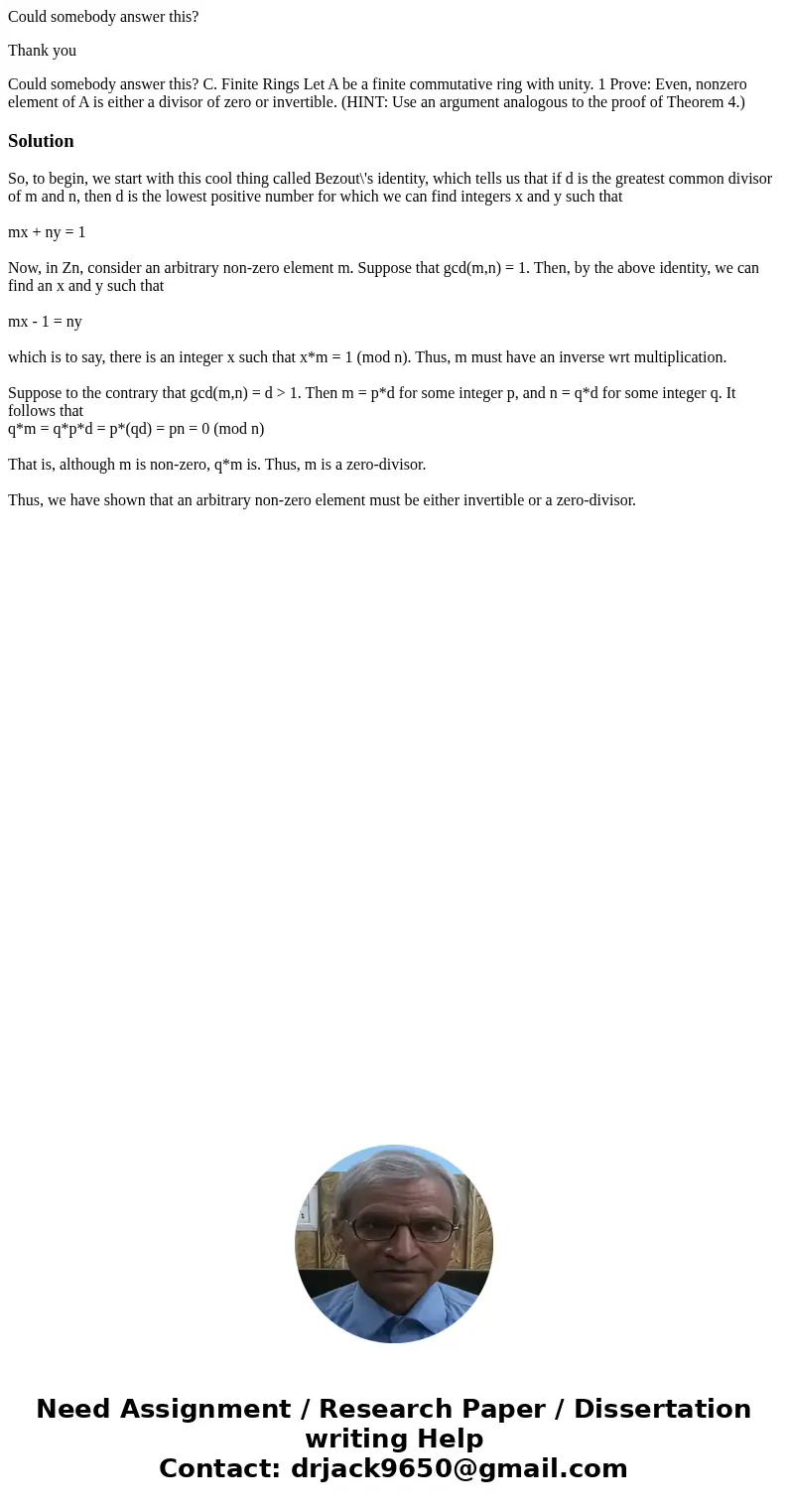Could somebody answer this Thank you Could somebody answer t
Could somebody answer this?
Thank you
Could somebody answer this? C. Finite Rings Let A be a finite commutative ring with unity. 1 Prove: Even, nonzero element of A is either a divisor of zero or invertible. (HINT: Use an argument analogous to the proof of Theorem 4.)Solution
So, to begin, we start with this cool thing called Bezout\'s identity, which tells us that if d is the greatest common divisor of m and n, then d is the lowest positive number for which we can find integers x and y such that
mx + ny = 1
Now, in Zn, consider an arbitrary non-zero element m. Suppose that gcd(m,n) = 1. Then, by the above identity, we can find an x and y such that
mx - 1 = ny
which is to say, there is an integer x such that x*m = 1 (mod n). Thus, m must have an inverse wrt multiplication.
Suppose to the contrary that gcd(m,n) = d > 1. Then m = p*d for some integer p, and n = q*d for some integer q. It follows that
q*m = q*p*d = p*(qd) = pn = 0 (mod n)
That is, although m is non-zero, q*m is. Thus, m is a zero-divisor.
Thus, we have shown that an arbitrary non-zero element must be either invertible or a zero-divisor.

 Homework Sourse
Homework Sourse